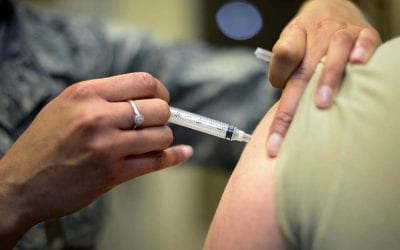
Many vacationers these days are reserving space on winter cruises in the warm waters of the Caribbean. For more than a few, it will be their first trip out of the US, and I’ve been asked in numerous emails recently if it’s necessary to get a passport for these cruises.
They’ve researched Caribbean cruises and learned about the Western Hemisphere Travel Initiative (WHTI). They’ve found out WHTI rules say they don’t need a passport and can use a Passport Card or other identification. They’ve also found the Customs and Border Protection (CBP) website states that in case of an emergency, they can get a passport waiver to fly home.
I’ll detail my opinion below, but to cut to the quick — every US citizen should use their US Passport for all their international travel, even Caribbean cruises.
It’s true for some Caribbean cruises — but not all — that a passport isn’t legally necessary to return to the US. It’s also true that there is a procedure to obtain a passport waiver to return to the US by air in the event of an emergency. However, travelers and the US State Department might have very different ideas about the definition of what constitutes an “emergency.”
With few exceptions, all US citizens must present a US passport as their proof of identity and citizenship when returning to the US from a foreign country. WHTI travel by land and sea, not air, is a major exception.
WHTI countries include Canada, Mexico, Bermuda and many, but not all, of the islands in the Caribbean. Other than Mexico, no Central American countries are part of WHTI, nor are any South American countries.
For cruises that travel exclusively within the US, its territories, and WHTI countries, US citizens can use a passport, passport card, enhanced driver’s license, some Trusted Traveler program cards and a few other specific identification cards when they return to the US.
US passengers on cruises which don’t travel exclusively within the US, its territories and WHTI countries, or who fly in and/or out of a foreign country at the beginning and/or end of their cruise, must use their US passport to return to the US.
It’s important to understand that if you’re a US citizen flying in or out of the US, to or from a foreign nation, WHTI or not, you need a US passport to return to the US.
By the way, there is a special kind of cruise called a “closed loop cruise.” It’s a cruise which starts at a US port, travels only to WHTI ports and ends at that original US port. US citizens need only present a government issued photo identification, along with proof of US citizenship to return to the US.
You might be asking yourself why I recommend a US passport for all US citizens taking a WHTI exclusive Caribbean cruise. It is essentially because of the potential for emergencies.
Emergencies do happen. I have friends who’ve returned from trips early because a family member died. I have other friends who had to return home when their son became ill. My neighbor was on a cruise when his companion had a heart attack and was medically evacuated home several days later. I’ve seen more than a few passengers miss the ship’s sailing from port over the years, and had to fly to the next port or even home.
In each of these cases, a passport was needed for the flight to return to the US.
Can you get an emergency passport waiver, as has been claimed? Yes, it’s possible, but not in all cases and it’s not necessarily easy to get.
According to the US State Department, Foreign Affairs Manual Volume 7, 1300, Appendix N, “The issuance of a passport waiver or travel letter is an accommodation of last resort. If at all possible, the person should obtain a US passport.”
In its section a.(2), it discusses when the US State Department might issue the waiver when it says, “… crisis situations abroad and unexpected emergency travel abroad in connection with the death or critical illness of an immediate relative occasionally require that the Department invoke these procedures.”
So yes, if a critical illness is involved in the emergency, and perhaps a death in the family, you can likely get a passport waiver, but even then you’ll have to verify your identity and citizenship somehow to get the waiver, and there is paperwork which must be filled out.
If you’ve merely missed the ship’s sailing to the next port, be prepared for a potentially expensive stay in the foreign country in which you find yourself, as you may have to travel to another city to get a passport at the local US embassy or consulate. Obtaining a passport will take time and money. If you’re stranded on a weekend, you’ll likely have to wait until Monday to get assistance.
So, even for short Caribbean cruises, if you’re traveling internationally by land, sea or air, get a passport. In case of emergency, I think you’ll find its $135 cost a major bargain.
After many years working in corporate America as a chemical engineer, executive and eventually CFO of a multinational manufacturer, Ned founded a tech consulting company and later restarted NSL Photography, his photography business. Before entering the corporate world, Ned worked as a Public Health Engineer for the Philadelphia Department of Public Health. As a well known corporate, travel and wildlife photographer, Ned travels the world writing about travel and photography, as well as running photography workshops, seminars and photowalks. Visit Ned’s Photography Blog and Galleries.

